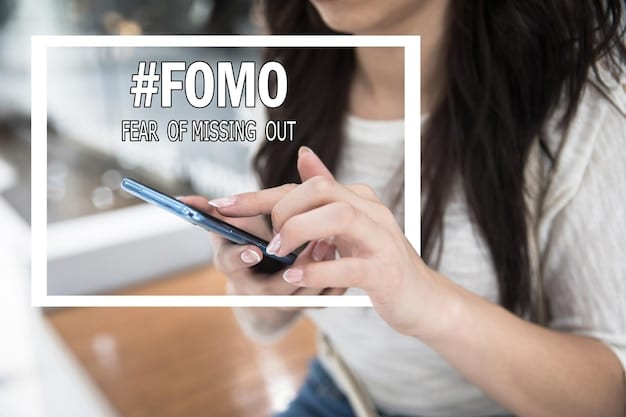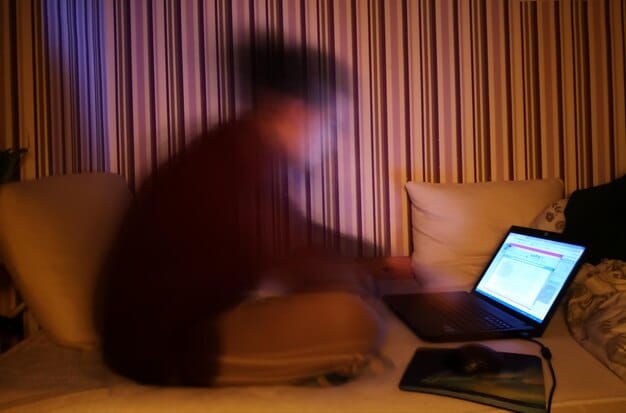K-Pop Fandom & Mental Health: Resources for US Fans Facing Online Issues

Navigating the intense world of K-Pop fandom can impact mental health, especially for US fans dealing with online toxicity; this article provides resources and support to cope with challenges.
For US fans immersed in the vibrant world of K-Pop, the online experience can be both exhilarating and challenging; understanding the intersection of K-Pop fandom and mental health is crucial for navigating its complexities, especially when dealing with online toxicity.
Understanding the Allure and Intensity of K-Pop Fandom
K-Pop’s global phenomenon attracts millions with its catchy music, intricate choreography, and engaging idol personas; however, the intensity of fandom can sometimes lead to unhealthy obsessions and heightened emotional experiences.
The draw to K-Pop isn’t just about the music. It’s also about connecting with a community of like-minded individuals who share a passion. This sense of belonging can be incredibly powerful, especially for those who might feel isolated in their daily lives.
The Positive Aspects of K-Pop Fandom
Being a K-Pop fan can bring numerous benefits, including a sense of community, creative expression, and emotional support. However, these positives can be overshadowed by the darker aspects of online fandom.
- Community Building: Fandoms offer a space for fans to connect, share their love for the music, and build lasting friendships.
- Creative Expression: Many fans engage in creative activities such as fan art, fan fiction, and dance covers, fostering artistic skills.
- Emotional Support: Fandoms can provide a sense of belonging and support during challenging times, offering comfort and understanding.
In conclusion, K-Pop fandom can provide fulfilling experiences if approached in balance. Recognizing the positive elements alongside possible harmful effects is essential for encouraging a healthy involvement for fans.
The Dark Side: Online Toxicity and Its Impact

Despite the vibrant communities of K-Pop fandom, online toxicity, including cyberbullying, harassment, and cancel culture, significantly impacts fans’ mental well-being. These negative interactions can cause stress, anxiety, and feelings of isolation.
Instances of online toxicity within K-Pop fandoms are all too common. Whether it’s fans attacking idols for perceived missteps or infighting among different fandom factions, the digital landscape can become a battleground of negativity.
Examples of Online Toxicity in K-Pop Fandom
Unfortunately, the world of K-Pop fandom isn’t always sunshine and rainbows. Here are some specific examples of how online toxicity can manifest:
- Cyberbullying: Direct attacks and harassment towards idols or fellow fans based on opinions or perceived flaws.
- Harassment: Persistent unwanted contact, intimidation, and threatening behavior online.
- Cancel Culture: Public shaming and online campaigns to ostracize idols or fans for perceived wrongdoings.
In short, online toxicity remains a significant problem within K-Pop fandoms, undermining the mental well-being of numerous fans. Tackling these issues requires a collaborative effort from community members, platforms, and also the management agencies.
Recognizing Signs of Mental Health Issues in Fandom
It is crucial for K-Pop fans to recognize the signs of mental health issues that may arise from online toxicity and excessive fandom engagement. These indicators can vary from changes in mood and behavior to physical symptoms.
Identifying when fandom engagement shifts from being enjoyable to negatively impacting mental health is the first step in seeking help. Awareness is key in promoting well-being within the K-Pop community.

Common Mental Health Indicators
Knowing the signs of mental health issues is crucial. Don’t hesitate to get help if you need it. Here are a few common mental health indicators:
- Increased Anxiety: Feeling nervous, restless, or tense more often than usual, especially when thinking about or engaging in fandom activities.
- Changes in Sleep Patterns: Experiencing difficulty sleeping or sleeping excessively due to stress related to fandom interactions.
- Social Isolation: Withdrawing from friends, family, or activities outside of K-Pop fandom.
To summarize, being aware of mental health indicators related to online toxicity and excessive fandom is crucial for creating a healthier K-Pop community.
Available Resources and Support Systems in the US
Fortunately, numerous resources and support systems are available in the US for K-Pop fans dealing with mental health issues related to online toxicity. These resources offer various types of assistance, including counseling, support groups, and crisis hotlines.
Understanding where to find these resources is essential for ensuring that fans have access to the support they need. Mental health support is more accessible than many realize.
Where to Find Help
Accessing mental health resources is often easier than people think. These are some places you can begin to find resources for your mental well-being:
Many resources are available to assist fans in addressing mental health challenges stemming from online toxicity and other problems within the K-Pop fandom. The important thing is to come forward and request assistance.
- Crisis Text Line: Text “HOME” to 741741 to connect with a crisis counselor.
- The Trevor Project: Offers support to LGBTQ young people at 1-866-488-7386.
- Mental Health America (MHA): Provides resources and support for mental health conditions.
In closing, knowing the available resources and support systems can empower K-Pop fans to seek help when needed, encouraging a healthier and more supportive online environment.
Strategies for Coping with Online Toxicity
Coping with online toxicity requires proactive strategies and a focus on self-care. By adopting healthy online habits and prioritizing mental well-being, fans can navigate the challenges of K-Pop fandom with greater resilience.
There are many strategies to manage and minimize the effects of online toxicity. The key is to recognize and implement these strategies consistently.
Practical Tips for a Healthier Online Experience
For a healthier approach to your online presence, you might consider these tips:
By combining proactive strategies with mindful online habits and self-care, K-Pop fans can reduce the harmful consequences of online toxicity. These coping mechanisms enable fans to develop resilience and enjoy what they love.
- Set Boundaries: Limit your time spent on social media and avoid engaging in toxic discussions.
- Use Blocking and Muting Features: Block or mute accounts that spread negativity or harassment.
- Practice Self-Care: Engage in activities that promote relaxation and well-being, such as exercise, meditation, or hobbies.
Ultimately, using effective coping mechanisms can help K-Pop lovers reduce the bad effects of online toxicity. These tools empower fans to stay durable and enjoy the positive aspects of their interests.
Building a Positive and Supportive Online Community
Creating a positive and supportive online community within K-Pop fandoms requires collaborative efforts from fans, moderators, and agencies. By promoting respectful communication, inclusivity, and empathy, we can foster a healthier online environment for everyone.
The way forward involves a combined dedication to advance constructive online interactions. When community members come together, true change can occur!
Steps to Promote a Healthier Fandom Environment
Promoting a healthier atmosphere can be achieved through these steps:
- Encourage Respectful Communication: Promote respectful dialogue and discourage personal attacks or derogatory language.
- Report Abuse: Take action against users who violate community guidelines or engage in harassment.
- Promote Inclusivity: Foster a welcoming environment for fans of all backgrounds, identities, and opinions.
To conclude, creating a thriving online community inside K-Pop fan circles needs active partaking from fans, moderators, and organizations. By concentrating on considerate communication, inclusiveness, and empathy, the online planet will be a great place to be.
| Key Point | Brief Description |
|---|---|
| 💖 Intensity of Fandom | Emotional investment can lead to mental health challenges. |
| 🗣️ Online Toxicity | Cyberbullying and harassment impact mental well-being. |
| 🌱 Mental Health Resources | US support systems offer counseling and crisis lines. |
| 🛡️ Coping Strategies | Setting boundaries and practicing self-care are essential. |
FAQ
▼
Look for patterns of cyberbullying, harassment, or cancel culture targeting idols or fellow fans. Also, pay attention to aggressive or derogatory language used in online platforms.
▼
Numerous resources are available, including the Crisis Text Line, The Trevor Project, and Mental Health America (MHA), which offer support and counseling services.
▼
Limit the amount of time spent online, unfollow or mute accounts that spread negativity, and prioritize real-life activities and relationships over online interactions.
▼
Increased anxiety, changes in sleep patterns, social isolation, and a constant need for validation from the fandom can all indicate that your mental health is suffering.
▼
Encourage respectful communication, report instances of abuse or harassment, promote inclusivity, and support initiatives that prioritize mental health and well-being within the community.
Conclusion
In conclusion, understanding and addressing the intersection of K-Pop fandom and mental health is crucial for US fans. By recognizing the signs of mental health issues, utilizing available resources, and implementing coping strategies, fans can enjoy their passion for K-Pop while protecting their well-being and fostering positive online communities.





